Ebola jokes exemplify unnecessary cruel humor
While the World Health Organization is responsible for buying many of the toys for educational purposes, other customers may be individuals looking for laughs.
Every week the editorial board reflects on a current issue in Our View. The position taken does not reflect the opinions of everyone on the Hilltop Views staff.
People are talking about Ebola. With 10,000 people infected by the deadly virus, it only makes sense to discuss. All this discourse can really make you wonder: Who cracked the first Ebola joke?
Ebola began to spread in February, and just like back then, Ebola is not funny. Still, there are already ads for a Halloween Ebola Hazmat suits that are selling for $79.99. Most can hardly go a day without hearing someone joke about a sickness affecting people around the globe.
So Ebola has to be funny to someone, right?
Apparently, it is to some of the customers of GIANTmicrobes Inc., a company in Connecticut that produces plush Ebola dolls that look like the small, microscopic worm-like virus. According to their website, they have recently sold out of their Ebola related products, including a small Ebola doll for $9.95, a large doll for $29.95 and an Ebola petri dish toy for $14.95.
While the World Health Organization is responsible for buying many of the toys for educational purposes, other customers may be individuals looking for laughs.
Who is entitled to make these jokes? If you’re donating 20 million dollars to the cause, have you bought the right to your dark humor? Or do you first have to test positive before cracking a joke about this disease? After all, people who make such jokes should be aware of what they are laughing at when they joke about Ebola, a virus that has recently killed around 4,500 people.
During the first week or two of infection, a patient can expect symptoms such as aches, pains, diarrhea, fever, sore throat, vomiting and more. Later symptoms may include bleeding from the eyes, ears, nose, mouth and rectum, eye or genital swelling and a general increase of pain, according to the National Institute of Health.
Most of the jokes we tell don’t have a punchline that includes genital swelling.
President Obama urged the American public Saturday not to give into hysteria when considering Ebola’s presence in the U.S. While Americans should remain calm and composed while dealing with the virus’ presence, they should also take it seriously. Ebola jokes suggest that they do not.
Jokes about Ebola desensitize people to the pain Ebola victims experience, along with the sorrow and loss those close to them experience.
If we want to talk about Ebola, we should sympathize with its sufferers, brainstorm ways to help eliminate it and spread awareness of potential preventative measures we can take to avoid contracting the virus.
This way, talking about the virus will be productive—not gossipy.
Dark humor like that in Ebola or Holocaust jokes is full of disgusting, macabre jesting that you hate yourself for laughing at, so why do we?
Sigmund Freud loved to talk about how sex and death correlate with everything we do. In death, Freud found that we look for humor. This humor is called gallows humor.
Freud’s scientific discussion on dark humor led to the coining of the term “gallows humor.” The theory of gallows humor can explain why, during the Holocaust, Jews made Holocaust jokes.
“The ego refuses to be distressed by the provocations of reality, to let itself be compelled to suffer. It insists that it cannot be affected by the traumas of the external world; it shows, in fact, that such traumas are no more than occasions for it to gain pleasure,” according to Freud in his 1927 essay “Humour.”
Most people use humor to talk about their fears and faults in a way that makes life less terrifying. Peoples’ consciences do not want bad things to happen to them, so they try to make every moment a good moment, according to Freud.
Self-deprecating jokes can be hilarious. Holocaust jokes are sometimes laughed at. Dead baby jokes can make people giggle. Racist, sexist, 9/11 and Ebola jokes will occasionally cause a laugh. But none of these things are inherently funny. People should not want to laugh at rape, death or sadness. But sometimes, we do.
These jokes are never tasteful and never justifiable, yet we laugh. And sometimes you laugh. Because occasionally, they’re funny. We can’t tell you when it’s appropriate to make a dark joke or laugh at one because it’s situational. There is no guide that says “Tell a dead baby joke at a Baptism, but not at a wake.” There is only comedic timing (and sometimes the timer is off).
Now that a UT student is being monitored for Ebola, that timer, at least for Austinites, may have run out.
For some twisted reason, sickness may seem funny when it is on a different continent, but when it enters someone’s home, we imagine that the idea of it becomes a lot less funny.
The best piece of advice we have is to remember that gallow humor is always funny, except when it’s not.


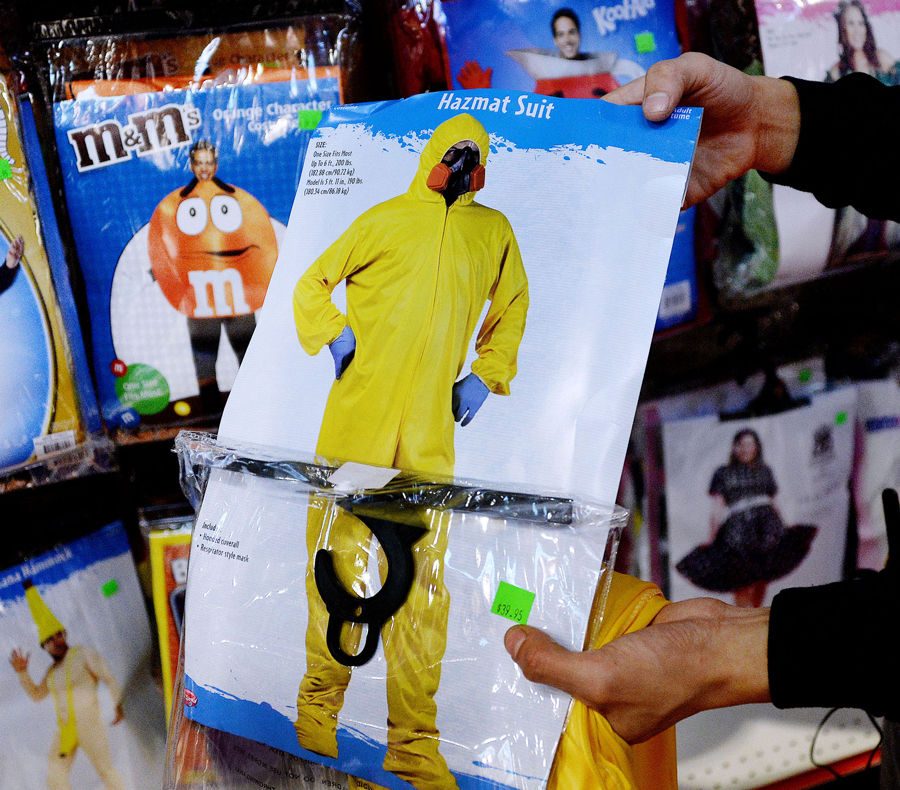
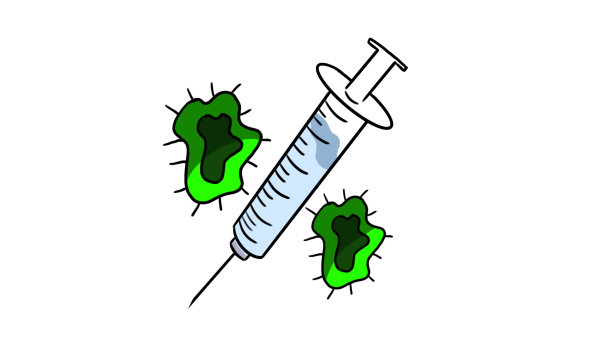
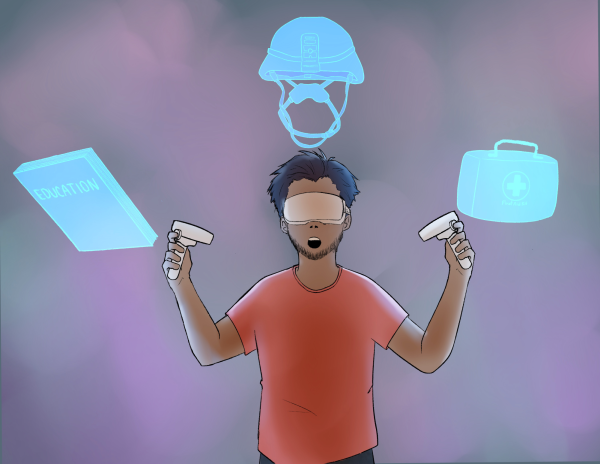

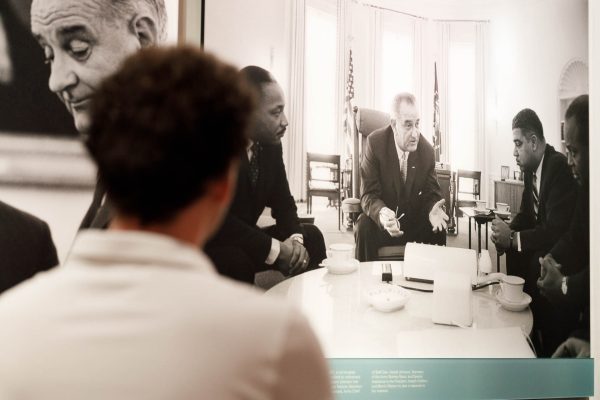

![According to a 1993 archive from Congressional Quarterly Almanac, “[Judge] Ginsburg was known as a restrained and fair-minded judge who did her homework and then some.” She was “considered moderate to conservative on criminal issues and business law,” relatively progressive “on issues such as free speech, religious freedom and separation of church and states,” and more liberal on “civil rights and access to the courts.”](https://www.hilltopviewsonline.com/wp-content/uploads/2020/10/VP-4RBG_CC-by-WFULawSchool-475x317.jpg)
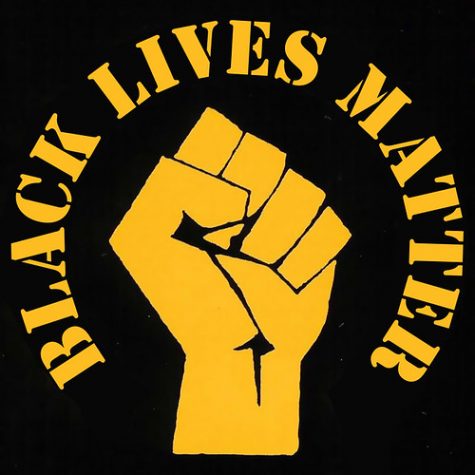




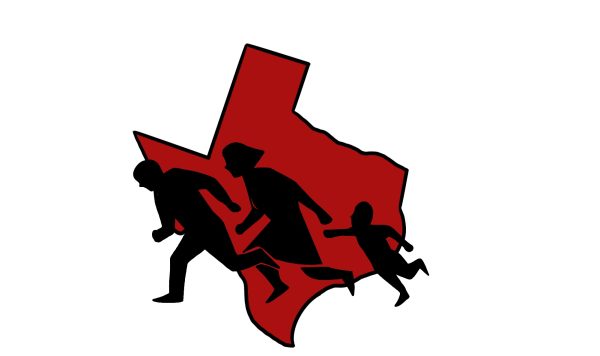
Some Guy • May 17, 2022 at 12:39 pm
1st amendment…